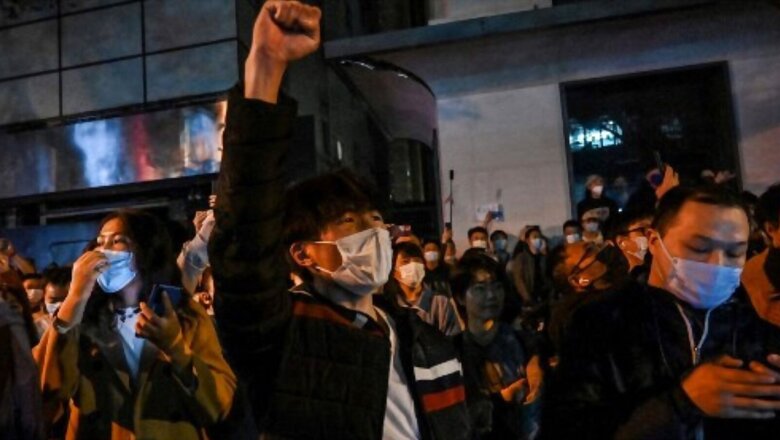Opinion | Here’s Why Protests in China over Covid Restrictions Are Different from Tiananmen Protests

views
On 24 November, a deadly fire broke out in a building in Urumqi, the capital of Xinjiang, leading to public outrage. This fire claimed the lives of ten and injured nine others. Lockdown restrictions, as the videos of the incident revealed, had delayed firefighters from saving the victims, causing the people to become furious, obviously for the right reason.
The incident sparked protests as thousands took to the streets and the demonstrations quickly spread beyond Xinjiang. Students from several Chinese universities such as Tsinghua also joined the protests. In some cities, such as Guangzhou, restrictions were lifted hours after the protests turned violent.
Though China received backlash previously as well from the general public due to its zero-Covid policy, the brutal state crushed all the protests. This time, supplies are running low, and the Chinese people cannot go back to work to earn their wages. For the past three years, their suffering fanned the flames of resistance to the Urumqi building fire.
Any protest in China, even small-scale, is a regular affair there, reminding us of the Tiananmen protests. Nevertheless, the scale of protests happening this time is wide as they are happening in over 23 cities. However, protests this time are standing starkly in contrast to the 1989 protests. Back then, the Communist Party of China (CPC) was internally split into two parts. One was led by premier Li Peng and another by Zhao Ziyang, a man standing for reforms. But, the situation is different now– the party and country are all under the control of almighty Xi Jinping. Thus, the youth protesting then didn’t demand to throw the system, but it is not the case today.
In an unprecedented act of resistance, some protesters have demanded greater freedom of speech and even asked President Xi to “step down.” One man went to the busy overpass in Beijing’s Haidian district and shouted, “Go on strike at school and work, remove the dictator and national traitor Xi Jinping! We want to eat, we want freedom, we want to vote!”
This series of events is directly challenging to the existence of the present system. People held up blank white sheets of paper to oppose censorship while chanting, “Need human rights, need freedom.” Some even called the protests a “white paper revolution.” Protestors have also managed to bypass the Great Firewall of China by sharing the rebellious content over Airdrop and through VPN.
This act has also garnered support from Chinese migrants and those living in the exodus. Chinese communities across the globe have shown strong support for the anti-government demonstrations. In the last three decades, Beijing has not experienced such large-scale protests.
The CPC’s one-size-fits-all approach did not seem to have an endpoint. It did not change as per the outbreak’s severity, while the rest of the countries have returned to normalcy. Such brave retaliation in an authoritarian country like China can prove to be another turning point in China’s history, decades after the Tiananmen Square massacre.
China has now implemented the most formidable “emergency response” level of censorship to suppress protests. When citizens started posting videos of their agitation on Twitter, the Chinese bots attempted to merge news with irrelevant and sexually explicit advertisements to divert people’s attention from the protest videos being shared on the micro-blogging platform. The authorities are now cracking down on VPNs to contain the spread of the agitation against Xi Jinping.
The government’s attempts to control public discourse have become more challenging after the demise of former Chinese leader Jiang Zemin on November 30. Nonetheless, such attempts to suppress the dissemination of news about the protests are all in vain till now. Will these protests be crushed or change the country’s system? It would be just speculation at this time.
Harshil Mehta is an analyst who writes on international relations, diplomacy, and national issues; Nidhi Sharma is a student of the Indian Institute of Mass Communication. Her focus is mainly on international relations and strategic affairs. The views expressed in this article are those of the author and do not represent the stand of this publication.
Read all the Latest Opinions here



















Comments
0 comment